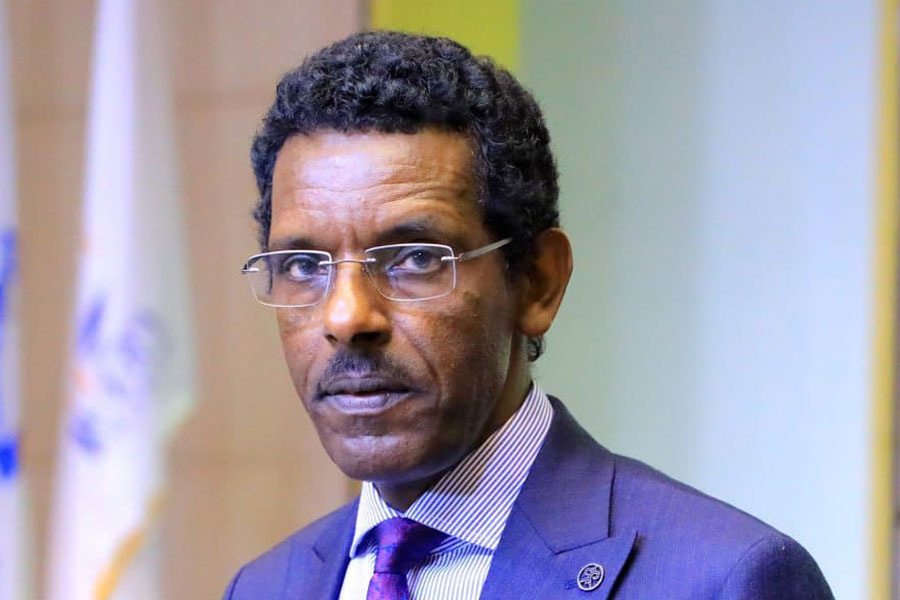
Fortune News | Aug 11,2024
The federal government’s budget for the fiscal year 2024/25, unanimously ratified by Parliament following a month-long series of hearings, unveiled a mix of ambition and caution.
With substantial investments earmarked for regional states’ subsidies and urban infrastructure, the budget demonstrates Prime Minister Abiy Ahmed (PhD) administration's dual priorities of stimulating economic growth while maintaining discipline in spending. However, the fiscal path has sparked debates on potential imbalances in budget priorities, particularly in critical sectors such as health, education, and agriculture.
Substantial subsidies to the 14 regional states reflected the administration's political priorities and attempts to address regional inequalities. Yet, the allocation contrasted with funding for other critical sectors, revealing potential misalignments in budget priorities. Experts warn that reliance on borrowing and substantial debt obligations expose underlying fiscal vulnerabilities that could threaten long-term economic stability and sustainable development.
With a budget of 971.2 billion Br for the coming fiscal year, substantial funds are allocated to finance high domestic borrowing. Urban development and construction received 104.7 billion Br, demonstrating a strong focus on urban infrastructure. This contrasts sharply with the 23 billion Br earmarked for agricultural and rural development, revealing a potential imbalance in prioritising urban areas over rural regions, despite the majority of Ethiopia's population residing outside cities and towns, relying on agriculture.
The health and education sectors received 33.9 billion Br and 79.8 billion Br (growing by 40pc), respectively, which appears modest compared to regional state subsidies and debt servicing.
Health spending has substantially dropped from the 69 billion Br allocated in 2022/23, revealing the reallocation of resources towards immediate concerns such as defence and debt servicing. Investing more heavily in health and education is generally considered prudent for promoting human capital development and long-term economic stability. Despite the ongoing need for substantial investments in these sectors, the modest growth in financing social services shows a possible misalignment in budget priorities.
"These are upside-down priorities," said an economist who asked to remain anonymous.
He considered the budgetary prioritisation incongruent with the realities of an agrarian economy like Ethiopia, which is largely underproductive. According to the economist, agricultural investments are needed to boost the economy's productivity, fight inflation, and promote long-term growth.
The Prime Minister told federal legislators that academic priorities would shift towards preschool and kindergarten, informing Parliament that nearly 30,000 schools for pre-grade children had been built. He believes that "plastering condominiums" in the name of higher education was no longer a sensible policy orientation.
However, university presidents had called for postponements - instead of suspensions - of their projects during the lead-up to budget hearings, pending a thorough expenditure reform before new capital projects are approved for their campuses.
"What is this business of city aesthetics?" the economist wondered.
Prime Minister Abiy's enthusiasm for the highly publicised ergonomic project in the capital, dubbed the corridor development, contrasted with anxieties many, like the economist, feel.
The project's first iteration, nearing completion in the next few months, includes 100Km of bicycle lanes, 96Km of pedestrian walkways, around 120 public toilets, 400 building renovations, and nearly 70 public parks. The Prime Minister told Parliament that mayors from 38 cities nationwide had visited the ongoing projects in Addis Abeba for lessons on successfully implementing corridor developments in their respective regions.
The nearly trillion Birr budget also sparked concerns over the equity of infrastructure distribution from legislators, with a five percent growth from the previous year to 222.7 billion Br for regional state's support.
Finance Minister Ahmed Shide urged regional state administrations to develop administrative apparatuses with due recognition of their respective fiscal capacities, promising more budgetary support from the federal government when it is in better financial standing.
He argued that the budget formulation process at the House of Federation, which factors in population size, development status, and expenditure needs of regional states, was predicated on equity.
"What matters most is that the allocation does not drop if it fails to increase," said Ahmed.
The budget also incorporated funding from external assistance and loans, amounting to 49.1 billion Br and 32.9 billion Br, respectively. The reliance on external funds, coupled with high domestic borrowing, shows a potential over-dependence on external sources, which could expose the economy to global economic volatility and conditions set by international lenders.
The substantial debt burden brings home the importance of careful management to avoid fiscal distress. The economist noted the difficulty of heavily relying on domestic credit by issuing treasury bills and bonds to finance the budget deficit of 358 billion Br, as most banks were already struggling with illiquidity.
"Where'll the money come from without creating serious problems?" he asked.
The economist sounded the alarm that the federal government might resort to printing money despite the pronouncements of declining direct advances by the central bank due to an inevitable shortage of funds as it pays off the 139 billion Br. Debt servicing expenditure for 2021/22 soared to 161.9 billion Br, up from 96.6 billion Br the previous year, reflecting a period of high debt repayment obligations or restructuring activities.
Long-drawn negotiations between the IMF and Ethiopian authorities over an economic reform program are expected to help the country receive debt restructuring under the G-20's Common Framework mechanism. The Prime Minister revealed that Ethiopia would receive a 10.5 billion dollars financial package over the coming years through support from the IMF, World Bank, and development partners.
"The reform will alleviate the debt burden," said Prime Minister Abiy, addressing Parliament late last week. "It'll remove artificial blockages."
Experts familiar with the matter anticipate that 3.5 billion dollars will likely be a bailout package, with the remaining seven billion dollars coming in a credit facility disbursed over several years. According to the economist, reforms such as shifting to a market-based exchange rate regime advocated by the IMF will entail a heavy economic burden for Ethiopians with fixed incomes, pensions, and highly indebted institutions.
Banks and state-owned enterprises with foreign currency-denominated debt are expected to experience the brunt of the impact of the imminent exchange rate reform.
"There’ll be no other way," the economist told Fortune. "Several sources of macroeconomic problems need to be addressed."
However, he warned that without major shakeups in fiscal administration and setting priorities, the credit facility would not be the "panacea" it has been extolled. He cautioned that inflationary challenges would deepen due to the lull in capital accumulation without complementary fiscal and monetary policy orientations marked by tight control of the money supply and targeted expenditures.
Finance Minister Ahmed disclosed to Parliament a debt restructuring of around 400 million dollars from Chinese creditors for projects, including the light railway system in the capital. He said a deposit restructuring from the United Arab Emirates (UAE) was achieved, followed by a debt suspension from the G-20 during the COVID-19 pandemic and interim relief of around two billion dollars through the Common Framework modality.
He reminded federal legislators that Ethiopia had not taken any commercial external loans over the past few years, stating that concessional loans had become a defining principle of the country's policy on new external loans. Long payback periods, low interest rates, and lengthy grace periods characterise these loans.
"The debt-to-GDP ratio is the best indicator of the country's economic status," Ahmed said. "Debt management has been very successful."
The public debt-to-GDP ratio has dropped to around 40.2pc from nearly 60pc in 2018, with external loans accounting for about 18pc.
Public debt servicing, allocated 139.3 billion Br, has already seen substantial expenditures, contrasting with allocations for growth sectors like health, water, and energy, which received 33.9 billion Br and 25.3 billion Br, respectively. The high debt servicing costs expose the burden of previous borrowings. The cost in 2021/22 likely corresponded to a peak in repayment schedules, possibly linked to large infrastructure projects financed in earlier decades.
The administration's focus on leveraging domestic revenue resources, with domestic borrowing of 325.6 billion Br, is targeted to stimulate the local economy. However, this strategy raises concerns about the sustainability of debt levels and the potential crowding out of the private sector.
Revenue trends provide a context for expenditure patterns.
From fiscal years 2020/21 to 2022/23, total revenue showed steady growth, increasing from under 500 billion Br. The growth exhibited efforts to enhance revenue generation through improved tax collection mechanisms and broader economic activities. Tax revenue, particularly domestic direct taxes from income, profit, and capital gains, constituted a substantial 161.10 billion Br. Indirect taxes, including VAT and services, further strengthened the revenue base, collectively contributing 127.30 billion Br. Notably, foreign trade taxes and duties add a significant 213.71 billion Br, proving the importance of international trade.
The Prime Minister stated his administration's revenue strategy, relying on economic savings through domestic debt while stressing the need for greater tax collection. Tax income is expected to grow by 14pc to around 502 billion Br, accounting for nearly 82pc of the government's revenue next year.
Abduljawad Mohammed (MP-PP from Dire Dawa) urged addressing tax evasion issues facilitated by corruption within federal and regional tax authorities. He argued that cleaning out corruption from the tax bureaus would address the budget deficit.
"Businesses are fed up," the MP said. "Nothing is done at the tax bureaus without bribes."
Non-tax revenue also showed growth, attributed to better performance of state-owned enterprises and increased fees and fines. Diversifying revenue sources has been instrumental in stabilising an economy and reducing dependency on volatile tax revenues. However, grants and aid exhibited a declining trend, pressing the authorities for robust domestic revenue mobilisation to compensate for reduced external inflows and a widening budget deficit.
The budget deficit trends over the years reveal a growing fiscal gap, with the deficit increasing each year.
From 99.6 billion Br in 2020/21, the deficit grew to 155 billion Br in 2021/22, and further to 360.4 billion Br in 2022/23. Although expected to subside by nearly two billion Birr in the new fiscal year compared to last year, the persistent increase in the deficit demonstrated that public expenditures are outpacing revenue growth, forcing the administration to borrow more.
While such a fiscal position might have stimulated economic activities in the past, it has also resulted in heightened pressure on the macroeconomic balance, from debt sustainability to inflationary pressures.
Inflation remains a persistent issue for Prime Minister Abiy’s administration. The rising cost of living eroding the real value of revenue collections and increasing public expenditure costs, particularly in wages, salaries, and administrative expenses. High inflation has also led to higher interest rates, escalating the cost of servicing domestic debt.
Public expenditures have shown robust growth, often outpacing GDP increases in certain years, revealing an expansionary fiscal policy aimed at economic stimulation.
In 2020/21, expenditure growth was 10pc, while GDP grew by half. The following year, 2021/22, saw an 18pc expenditure growth against GDP growth of 5.3pc. The disparity revealed a determined effort to inject financial stimulus into the economy, possibly to counteract the adverse effects of economic shocks. By 2022/23, expenditure growth accelerated to 22pc, with GDP growth at 6.5pc.
For the coming fiscal year, expenditure is expected to jump by 21.1pc, with the IMF projecting GDP growth of 6.5pc, reinforcing the trend of substantial public spending growth.
The budget is also predicated on an economic growth estimate of 7.9pc. The Prime Minister forecasted a 10pc boost in the industrial sector next year as the 'Ethiopia Tamr’t' - Let Ethiopia Produce - initiative is realised more comprehensively. He reported that more than 300 factories had gone into operation over the past year through the initiative.
Nevertheless, a policy paper by the United Nations Development Program (UNDP), released last year, revealed that access to inputs, finance, and a series of systemic shocks had rendered the sector's contribution to GDP at 4.6pc. The single biggest deterrent identified by the UNDP for success in manufacturing was the lack of peace and stability, alongside a growing perception of a "country in crisis" emerging from the investor community.
As part of an attempt to address security concerns, next year's expenditure comprises an expansion of the defence budget by 30pc to 65.7 billion Br, with security sectors receiving 27.6 billion Br. The defence budget marks a substantial decline from the 84 billion Birr appropriated in 2021/22 but doubles the previous year's allocation, indicating the federal government's response to escalating security concerns, with internal conflicts and regional tensions proliferating.
The Prime Minister did not mince his words, warning that the country's military can “adequately meet any threat to peace” while acknowledging the need to strengthen its capacity further. He cautioned against the ravages of war, reflecting on how small sparks can conflagrate into widespread fires that consume communities and the economy.
"We're the strongest we've ever been," he said.
PUBLISHED ON
Jul 07,2024 [ VOL
25 , NO
1262]

Fortune News | Aug 11,2024
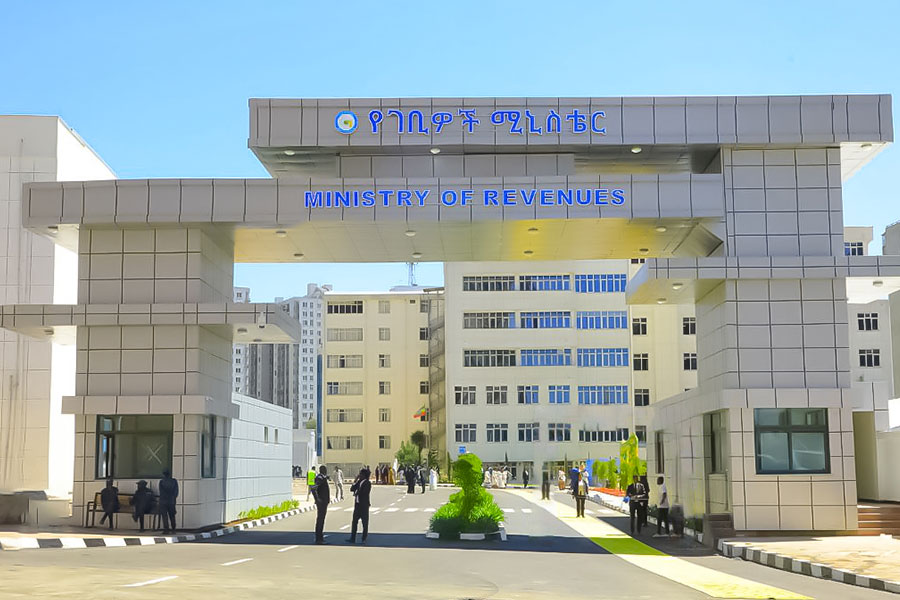
Radar | Jun 08,2025
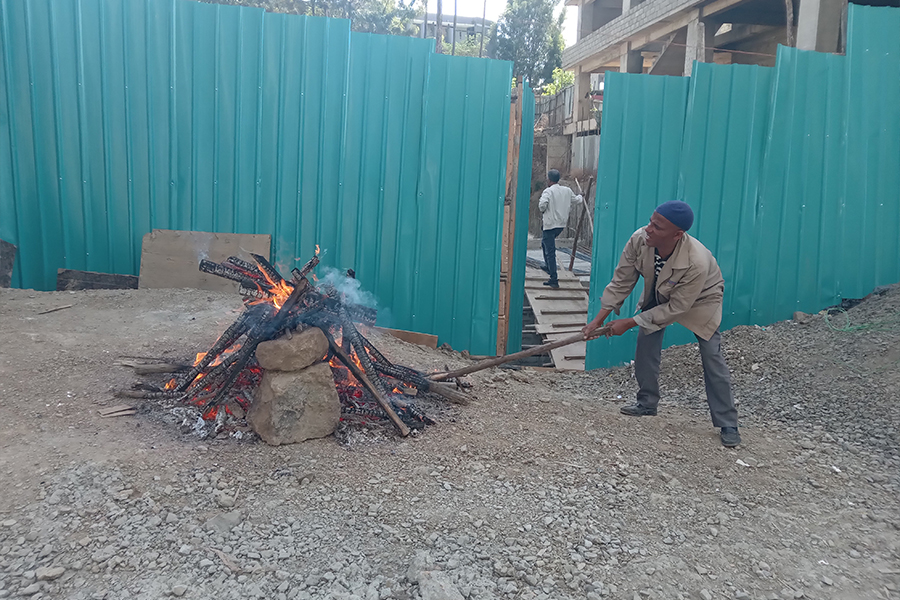
In-Picture | Mar 02,2024
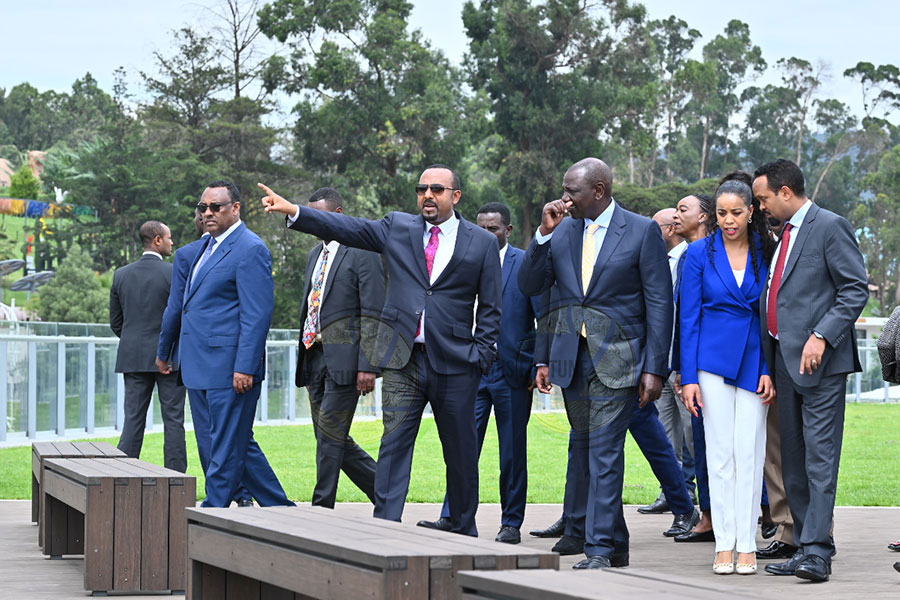
Fortune News | Oct 08,2022

Delicate Number | May 24,2025
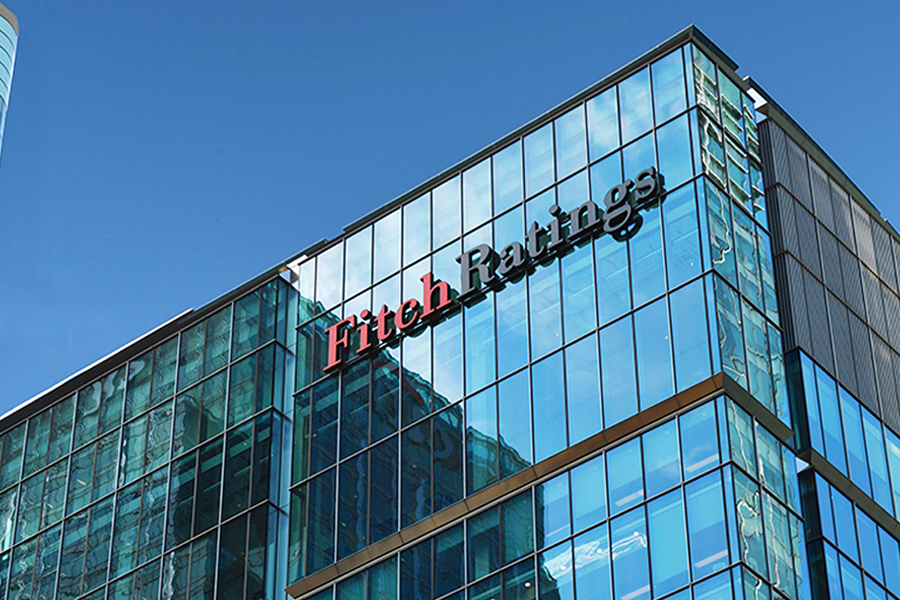
Radar | Nov 03,2024
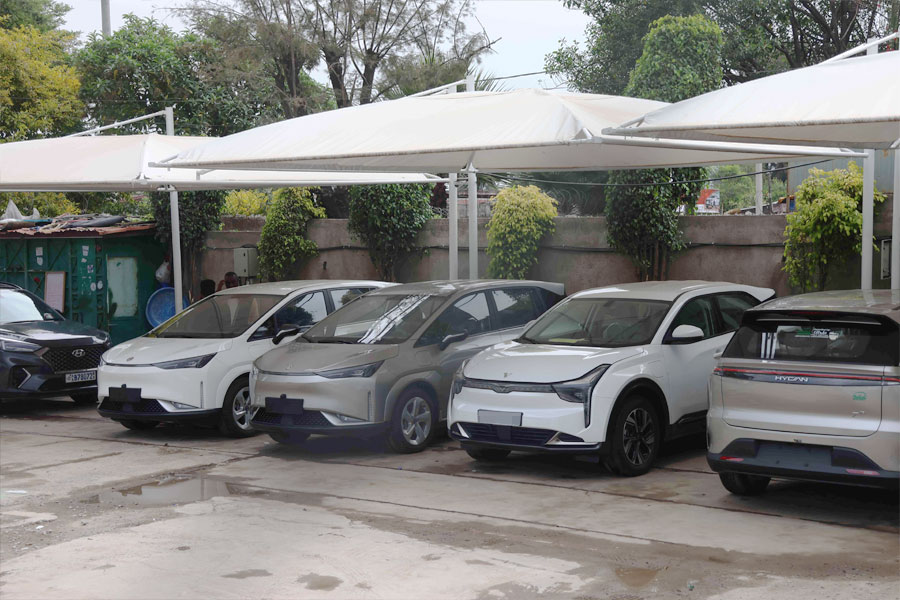
Featured | Sep 29,2024

Commentaries | Jul 30,2022

Fortune News | Jul 13,2025
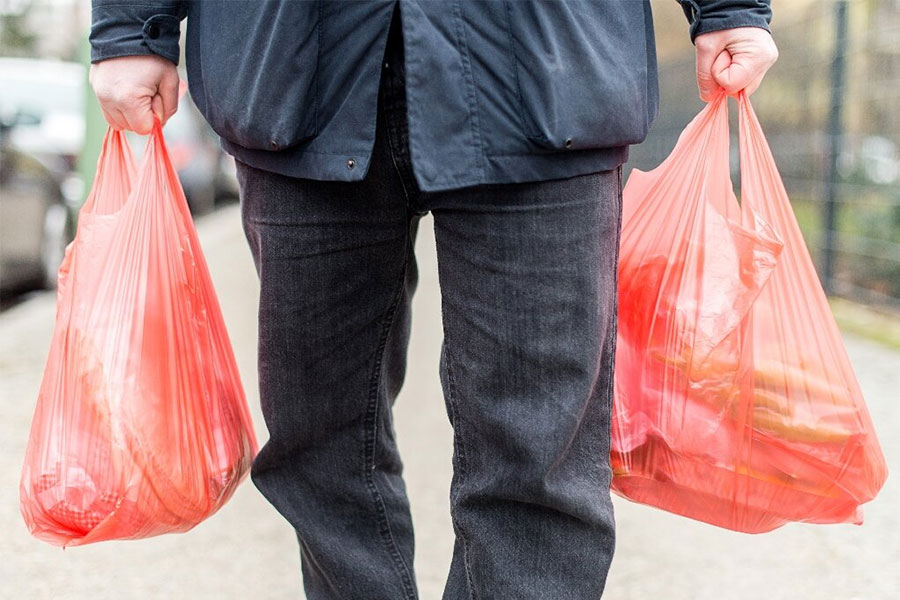
Radar | Jun 07,2025

Dec 22 , 2024 . By TIZITA SHEWAFERAW
Charged with transforming colossal state-owned enterprises into modern and competitiv...

Aug 18 , 2024 . By AKSAH ITALO
Although predictable Yonas Zerihun's job in the ride-hailing service is not immune to...

Jul 28 , 2024 . By TIZITA SHEWAFERAW
Unhabitual, perhaps too many, Samuel Gebreyohannes, 38, used to occasionally enjoy a couple of beers at breakfast. However, he recently swit...

Jul 13 , 2024 . By AKSAH ITALO
Investors who rely on tractors, trucks, and field vehicles for commuting, transporting commodities, and f...

Oct 25 , 2025
The regulatory machinery is on overdrive. In only two years, no fewer than 35 new pro...

Oct 18 , 2025
The political establishment, notably the ruling party and its top brass, has become p...

Oct 11 , 2025
Ladislas Farago, a roving Associated Press (AP) correspondent, arrived in Ethiopia in...

Oct 4 , 2025
Eyob Tekalegn (PhD) had been in the Governor's chair for only weeks when, on Septembe...